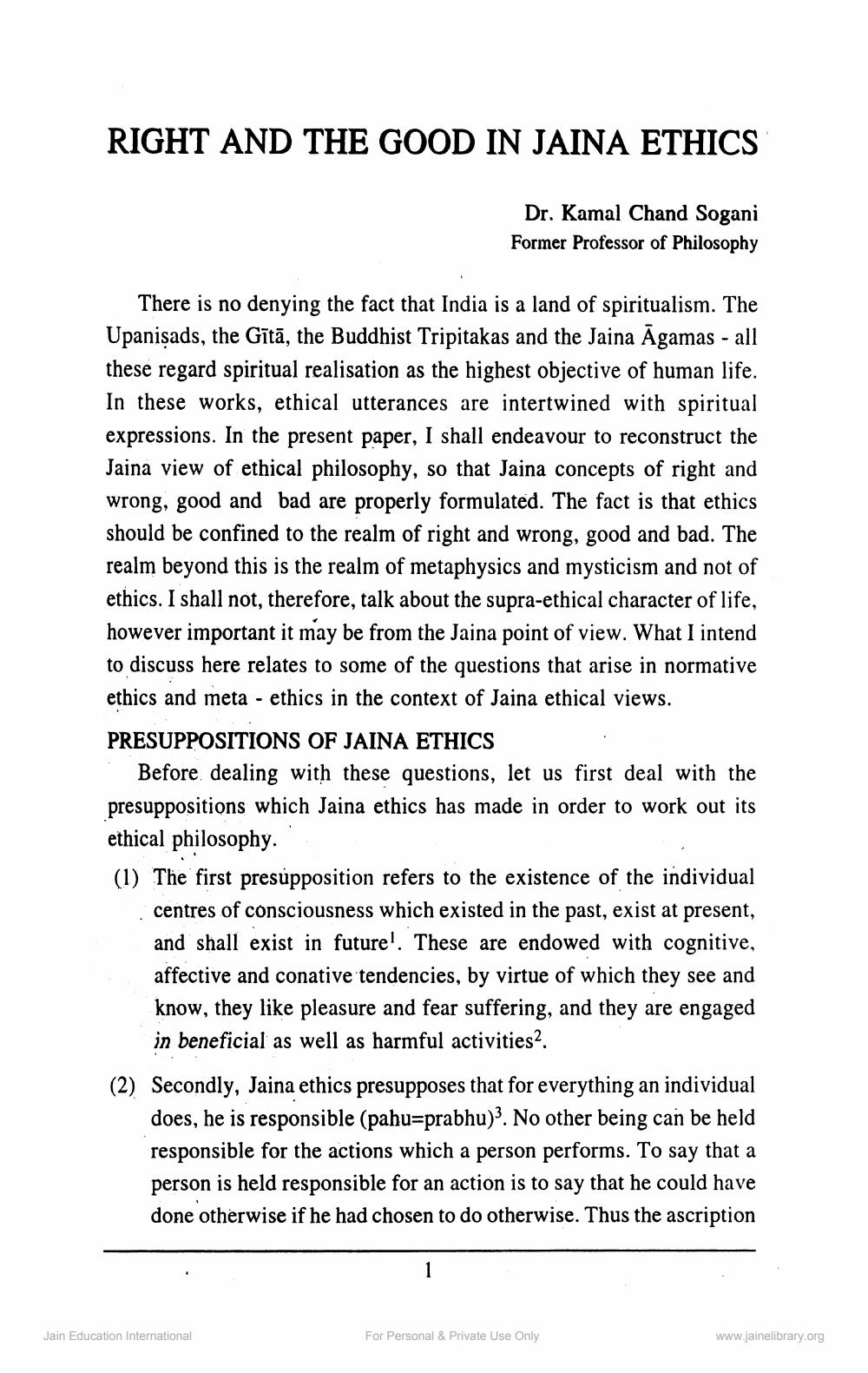Book Title: Right and the Good in Jaina Ethics Author(s): Kamalchand Sogani Publisher: ZZZ Unknown View full book textPage 6
________________ RIGHT AND THE GOOD IN JAINA ETHICS Dr. Kamal Chand Sogani Former Professor of Philosophy There is no denying the fact that India is a land of spiritualism. The Upanişads, the Gītā, the Buddhist Tripitakas and the Jaina Āgamas - all these regard spiritual realisation as the highest objective of human life. In these works, ethical utterances are intertwined with spiritual expressions. In the present paper, I shall endeavour to reconstruct the Jaina view of ethical philosophy, so that Jaina concepts of right and wrong, good and bad are properly formulated. The fact is that ethics should be confined to the realm of right and wrong, good and bad. The realm beyond this is the realm of metaphysics and mysticism and not of ethics. I shall not, therefore, talk about the supra-ethical character of life, however important it may be from the Jaina point of view. What I intend to discuss here relates to some of the questions that arise in normative ethics and meta- ethics in the context of Jaina ethical views. PRESUPPOSITIONS OF JAINA ETHICS Before dealing with these questions, let us first deal with the presuppositions which Jaina ethics has made in order to work out its ethical philosophy. (1) The first presupposition refers to the existence of the individual centres of consciousness which existed in the past, exist at present, and shall exist in future! These are endowed with cognitive, affective and conative tendencies, by virtue of which they see and know, they like pleasure and fear suffering, and they are engaged in beneficial as well as harmful activities. (2) Secondly, Jaina ethics presupposes that for everything an individual does, he is responsible (pahu=prabhu)”. No other being can be held responsible for the actions which a person performs. To say that a person is held responsible for an action is to say that he could have done otherwise if he had chosen to do otherwise. Thus the ascription Jain Education International For Personal & Private Use Only www.jainelibrary.orgPage Navigation
1 ... 4 5 6 7 8 9 10 11 12 13 14 15 16 17 18 19 20 21 22
